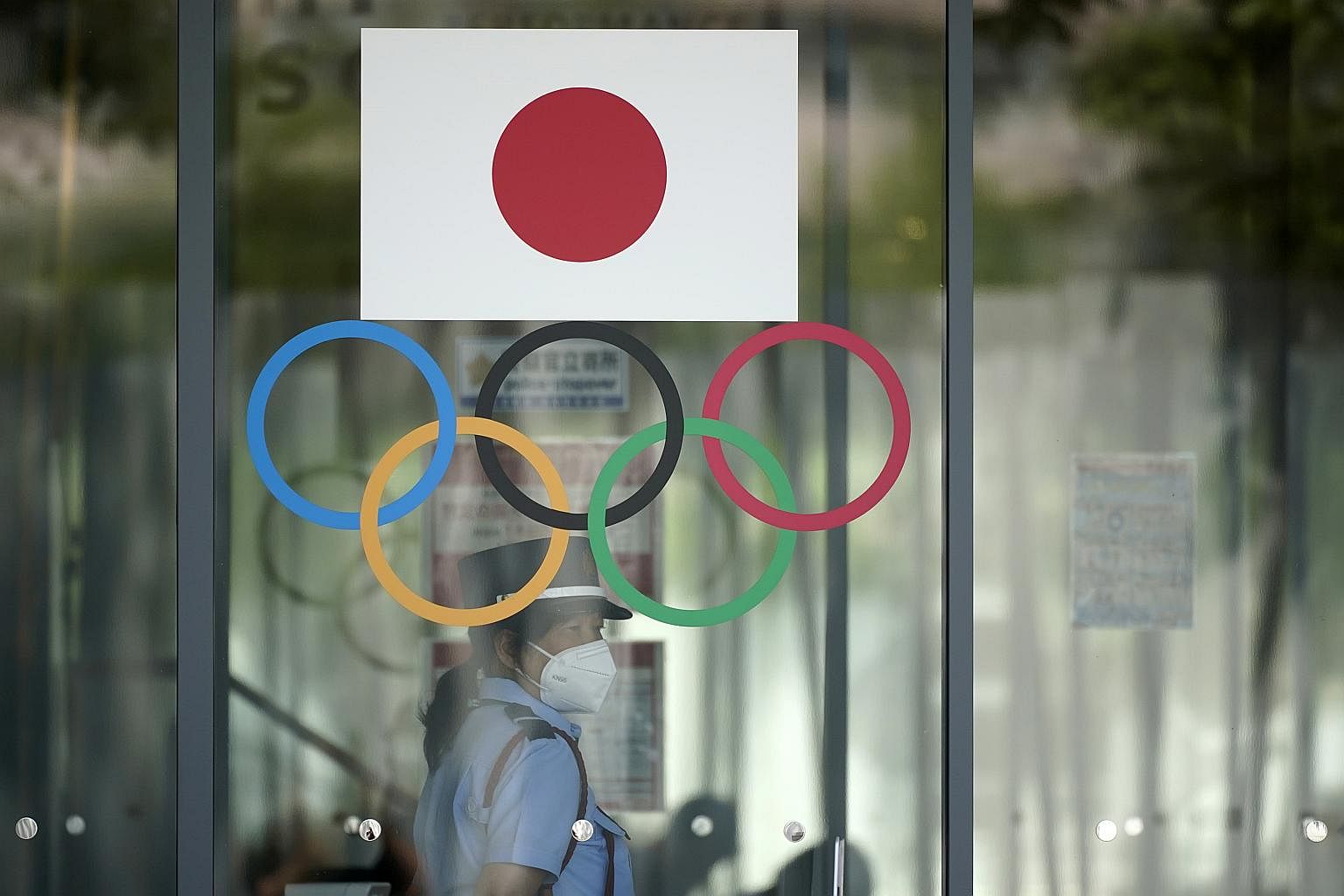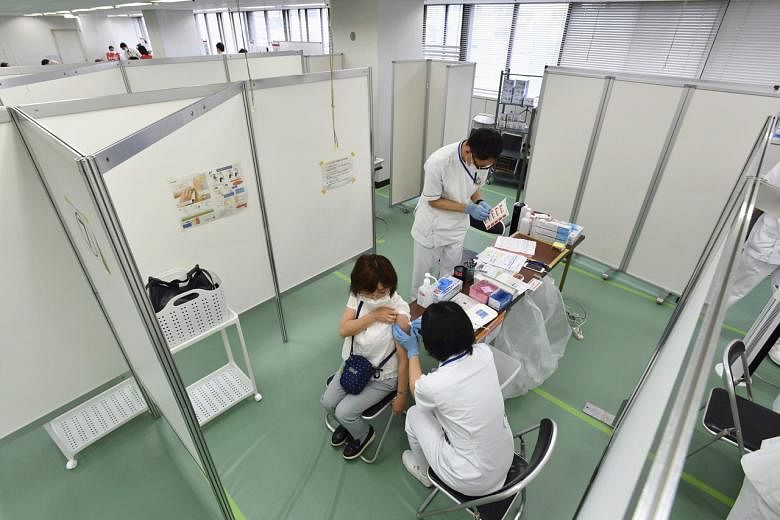TOKYO - Japan has crossed the milestone of having delivered at least one dose of a Covid-19 vaccine to 10 million people, it said on Wednesday (June 2), as its inoculation drive kicks into higher gear after a sluggish and patchy start.
The country administered an average of 485,752 doses a day in the week ending Tuesday, which is four times the seven-day average in the week ending May 11, Prime Minister's Office data show.
The fourth-wave surge in Covid-19 cases in Japan has given Prime Minister Yoshihide Suga impetus to accelerate the vaccination push, as the public tires of the emergency restrictions.
While just 8.2 per cent of Japan's population of 125.4 million have received at least their first dose, this is three percentage points higher than just a week earlier and the figure is set to climb exponentially as more mass vaccination centres open.
Public hesitancy and scepticism have given way, with success stories of economies having reopened elsewhere.
Mr Suga has placed vaccines as a key plank in his Covid-19 exit strategy, and set an ambitious goal of delivering one million shots a day by later this month.
Success in the inoculation programme will be central to his political survival, as his support ratings have plunged as Covid-19 cases surged.
The Olympic Games remains massively unpopular with just seven weeks to go before the event opens on July 23. Any spike in cases thereafter - including from a much-feared "Olympic variant" - will likely hurt the ruling Liberal Democratic Party's chances in a general election due by October.
Dr Shigeru Omi, who heads a government Covid-19 panel, told the Diet on Wednesday that massive events like the Olympics are "not normally held during a global pandemic", adding: "The scale must be minimised and management strengthened."
Vaccines, however, are seen as a way to overcome public opposition.
With Japan set to receive 50 million more doses than necessary to inoculate its two priority groups of healthcare workers and the elderly by this month, top government spokesman Katsunobu Kato said jabs for the general public will begin on June 21 at workplaces and universities.
Of the 14 million doses administered so far, 10.4 million were the first dose while the other 3.6 million were the second one in the two-shot regimen.
Mr Suga wants to complete inoculations for senior citizens by end-July. Base estimates show that the government will reach the target by then, or at least by mid-August.
It has not been an easy road, and the country has been beset by a host of obstacles including vaccine distrust, a lack of supply, a manpower shortage and a decentralised medical system.
Japan was slow to approve Covid-19 vaccines, given its chequered past with those against mumps, measles and rubella, as well as the human papillomavirus, that have resulted in lawsuits against the government.
This also took the wind out of the nation's pharmaceutical companies, which had not invested in vaccine development prior to Covid-19, given a lack of official grants.
Supply was also an issue, prompting Mr Suga to personally intervene with a pitch to Pfizer chief executive officer Albert Bourla on the sidelines of his visit to Washington in April.
Japan has managed to secure 344 million doses, which are more than enough to vaccinate its entire population, with 220 million to be delivered by September.
It has approved vaccines by Pfizer-BioNTech, Moderna and AstraZeneca, though AstraZeneca shots are caught in regulatory limbo with roll-out having been paused on the same day as they were approved, amid reports of rare blood clots abroad.
Japan is now considering providing AstraZeneca doses, of which it has secured 120 million, to Taiwan amid a surge in Covid-19 cases there.
A shortage of manpower was also a major issue, prompting regulations to be amended so as to enlist Self-Defence Forces (SDF) medics, dentists, pharmacists, retired nurses, clinical laboratory technicians and paramedics to deliver shots into arms.
Mass vaccination centres have opened, or are being planned, in major cities including Tokyo, Osaka, Yokohama, Kyoto and Kobe.
Japan has begun vaccinating its athletes bound for the Games, with the police, firefighters and SDF set to be also given priority.
Workers in the high-risk nightlife and entertainment districts are also being eyed for early inoculations, reports said.

Tokyo Governor Yuriko Koike has announced that the former site of the Tsukiji fish market - which will be used as a transport hub for the Games - will be converted into a temporary vaccination site from next Tuesday.
She added on Tuesday that plans to convert green spaces at the popular Yoyogi Park near Harajuku into a public viewing space for the Olympics have been ditched in line with official advisories to reduce public movement as much as possible. Instead, she said, the space will also be used for a vaccination facility from next month.
Major conglomerates, including Toyota Motor, East Japan Railway, Rakuten, Sony and Japan Airlines, are reportedly considering their own in-house vaccination drives.
"There is no point in building up inventories of vaccines, because they are precious," minister-in-charge of vaccination efforts Taro Kono said at a press conference on Tuesday, vowing to speed up the roll-out.
Japan reported 3,036 Covid-19 cases as at 7pm on Wednesday, down from a fourth-wave peak of 7,236 on May 8. Tokyo had the most, with 487.












